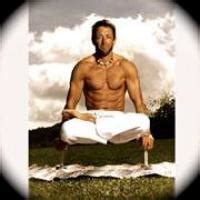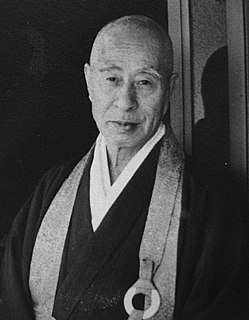A Quote by Shunryu Suzuki
Those who sit perfectly physically usually take more time to obtain the true way of Zen.
Related Quotes
Zen is the enemy of analysis, the friend of intuition. The Zen artist understands the ends of his art intuitively, and the last thing he would do is create categories; the avowed purpose of Zen is to eliminate categories! The true Zen-man holds to the old Taoist proverb,
Those who know do not speak. Those who speak do not know.
What I learned, more than anything, was that you can't have it all balanced perfectly at any one time. When I was young, it was much more balanced toward work. When I had my children, it was much more balanced toward love and family, and I didn't get a lot of work done. So you can't ask of it to be perfectly balanced at any time, but your hope is, before you die, you've somehow had each of those spheres come to life. That's probably more important than success in any one of those spheres alone.
When I first came to New York, I knew some painters older than myself. I was kind of the kid who was allowed to hang out with them. That is more the way people talked in those days, it was perfectly normal to question a work's fundamental premises and its fundamental visual manifestations. It was perfectly okay to say, "Oh, that should have been red" or something like that. In a funny way, the way artists talk about art is to de-privilege it.





































